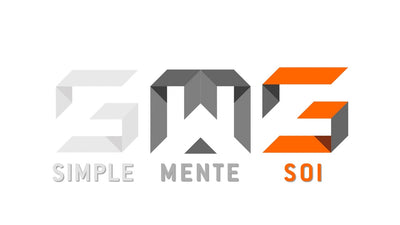The Basic Sense of Self: Mindfulness Benefits of the Advanced Meditation Alters Consciousness - Part 2

Your belief system can reflect your core priorities and help define your stance on significant matters. For instance, a commitment to animal rights might lead you to opt for cruelty-free products and make more conscientious food choices.
Values also serve as a compass for setting boundaries in your relationships. If honesty is important to you, you may establish that lying is a deal-breaker in any relationship. While you don't have to pinpoint all your values at once, it's beneficial to reflect on potential values as you navigate your daily interactions.
Empower Your Decision-Making
Your choices should primarily promote your health and well-being. While considering the needs of your partner and children is crucial, it's equally important not to neglect your own needs. Remember: When you neglect your own needs, you have less to offer others.
Perhaps in the past, you allowed others to make significant decisions for you, such as choosing your college, career, or place of residence. Transitioning to making decisions for yourself can feel daunting but empowering.
Nurture yourself
“Anything you can do to nurture the positive side of yourself can help,”
If you feel disconnected to your true self, consider how you spend your free time and whether your activities send messages that support and build confidence.
Surround yourself with support
Surrounding yourself with supportive people can help you see the best in yourself, which can strengthen your sense of self. Turning to faith or spirituality can also be beneficial for developing sense of self. Having a spiritual path — or “something bigger than yourself” — can help ground you and offer support when times are tough.
Heal past wounds
Addressing emotional wounds and healing from past traumas can be helpful in improving your sense of self, we at Simplementesoi believe.

Strong Sense of Self
Developing a strong sense of self is an element central to both good mental and emotional health. Another tell-tale characteristic of a person with a strong sense of self is that they have clear boundaries. They definitely know their limits and can assertively communicate them to other people.
Exhibit confidence: A strong sense of self breeds confidence, as individuals are sure of their abilities and decisions.
Maintain autonomy: They are less likely to be swayed by external pressures and more inclined to make choices that align with their values.
Display resilience: These individuals are better equipped to handle stress and adversity as they have a solid foundation of self-belief and purpose.
Creating a strong sense of self is not easy, but it is something well worth spending the time and effort to achieve.
'Poor' Sense of Self
A poor sense of self can result in a number of difficulties, which can include:
Insecurities and self-doubt: a person is always questioning themselves about their value to their abilities in the world, which may lead to low self-esteem.
Dependence on external validation: They would depend a lot on what other people say for them to feel good about themselves, which could make them lack independence in decision-making.
Difficulty in setting boundaries: The inability to form a clear image of who they are could make setting and maintaining healthy boundaries in relationships a problem.
Increased vulnerability to stress: It would be difficult to cope with challenges in life; hence, higher anxiety and stress.
We at Simplementesoi believe that recognizing the signs of a poor sense of self is the first step toward making positive changes and building a more robust self-concept.

The Benefits of the Advanced Meditation: Alters Consciousness
Advanced meditation practices, such as transcendental meditation, mindfulness meditation, and deep breathing exercises, can significantly enhance our sense of self by altering our state of consciousness. These practices bring in many benefits, as follows:
- Advanced meditation will be responsible for self-realization to an extent that helps us observe thoughts and emotions with detachment. Clarity can be attained so that we know more about our true selves.
- Decreased stress and anxiety: Meditation leads to increased relaxation and reduced influence of stress on the mind and body. With a quiet mind, stressors are well handled with a perspective in balance.
- Improved emotional regulation: As meditation is practiced regularly, one can bring in proper control over the mind and respond to the situation calmly and composedly rather than reacting to the situation impulsively.
- Higher focus and concentration: Meditation works on training the brain, hence improving its focus, consequently enabling it to carry out tasks while focusing and making sound judgments.
- Increased sense of connection: By advanced meditation, we can enhance empathy toward others and compassion with the universe. With advanced meditation practices, we can get to know ourselves closer to who we actually are and feel how dynamic the change could be in our life.
Conclusion
We at Simplementesoi believe that self-identity is probably the most crucial component of individual growth and general well-being. The development of our self-concept is linked to personal experiences, relationships, and social norms.
Mindfulness and advanced practices of meditation lead to the reinforcement of our self under conditions of resiliency and emotionally regulative skills. These practices have been shown to enhance many beneficial effects that go on to improve mental and emotional health, which builds a strong sense of self.
As we continue on our journey of self-discovery, it is essential to remain mindful and present, embracing the process of growth and transformation. Through advanced meditation, we can alter our consciousness and unlock the full potential of our sense of self, leading to a more fulfilling and meaningful life.
Follow our Simplementesoi blog for more mindfulness tips and insights. Read our blog to stay healthy in any possible aspect.


Hinterlassen Sie einen Kommentar